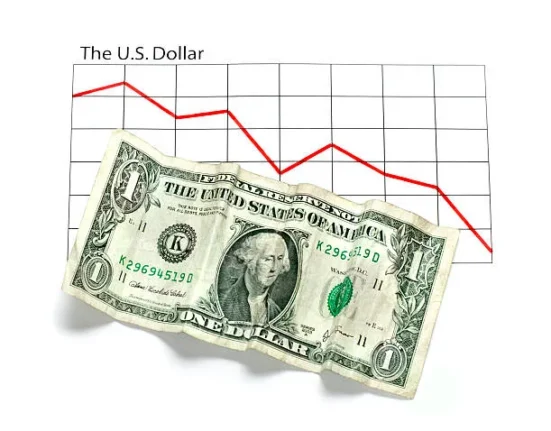News outlets have been filled with trade barriers and stock market news for years, especially as the US-China trade war escalates. As each subsequent set of tariffs and countervailing measures has been implemented, investors, businesses, and governments have had to come to terms with the complex realities of trade tensions for global markets. This blog goes into the background of trade barrier and how they have influenced the past years’ conflict of the US-China trade war, resulting in volatility in the United States of America stock markets.
Trade Barriers and the Escalation of the US-China Trade War
The US-China trade war has just kicked off with the tariffs imposed by the United States on a vast array of Chinese imports, citing unfair trade practices, theft, and misappropriation of intellectual property rights. In reply, China placed its tariffs targeting US agricultural goods and other crucial exports. These expanding trade barriers rapidly became the focus of trade barriers and stock market news today, as both nations prepared for a protracted economic battle.
Each new muttering of tariffs or trade barriers flashed red ink across the markets. Consider the example of when the Trump administration imposed tariffs on $60 billion of Chinese goods. It wiped off 700-plus Dow Jones Industrial Average points on the same day it announced the move, rather summarily trading on the real-time stock market impact of the growing US-Chinese trade tensions. This volatility was not limited to America; global markets tanked, too, and Asian and European shares saw huge losses every time new trade war news emerged.
Market Sentiment and Investor Reactions
One of the most significant effects of trade barrier has been on market mood. Investors are attentive to trade barriers and stock market news today for any indication of the escalation or de-escalation of the trade war, since these events can potentially cause significant changes in their investment portfolio. A study suggests that deteriorating trade disputes, especially when amplified by media coverage, result in significantly more volatility and sharp downfalls in stock prices.
A new trade sentiment index devised by researchers found that the sentiment with trade news in the news in Chinese media alone explained around 10% of the fluctuation in stock prices worldwide at the height of the US-China trade war. Sectors most impacted by tariffs, such as info tech, were most responsive to shifts in trade sentiment. No equity market profited from the deteriorating US-China relationship, and the Asian markets were severely affected due to negative trade-war news. This highlights the dual role of trade barriers and today’s stock market in market movement.
The Lasting Stock Market Impact
The influence of trade barriers on the stock market has not been short-lived. Empirical analyses reveal that US-listed Chinese companies, in particular, suffered greatly from the times when tariffs increased. For example, as formal violence peaked, while the broader US equity market percentage dropped by 6%, the stock prices of big Chinese firms like Alibaba and JD.com fell by 10% and 13% simultaneously. The disparity in performance between US-listed Chinese stocks and the S&P 500 peaked at 12.6% due to trade tensions, showing the tremendous degree to which trade barrier damaged companies caught in between.
Perhaps more damaging for the business sector is the extremely uneven trajectory of U.S.-China trade. In the long term, regardless of signs of de-escalation or reform, market confidence never fully recovered, showing the lasting scars caused by long-term trade tensions. This ongoing doubt is seen repetitively in trade barriers and stock market news today.
Broader Economic Consequences
Bending the immediate stock market effect, the US-China trade war and its linked trade barriers have had a broader influence on supply chains, companies investing in, and GDP. Firms that depend on global supply chains have experienced higher costs and disrupted manufacturing due to tariffs and other trade restrictions. This has been especially striking in sectors such as technology and manufacturing, where intermediate goods cross borders numerous times before reaching clients.
Farmers and exporters in both countries have suffered, as retaliatory tariffs have cut off essential markets and forced enterprises to seek new customers. These dislocations are frequently discussed in trade impediments, market news, and stock trading, raising the issue of trade costs.
The Role of News and Information
Throughout the trade war, trade barriers and stock market news today have been pivotal in formulating investors’ market sentiment and trend. Announcements of new tariffs, trade negotiations, or political statements can cause market fluctuations in just a few minutes. Social media & online forums have magnified these effects, with a patriarchal narrative accounting for the vast majority of sentiment-driven stock price swings during a trade war.
This has made investing more difficult, as investors must now decipher the numbers and the latest chatter and news. Consequently, trade barriers and stock market news are now being read by those who want to follow or take advantage of market trends during higher trade tensions.
Conclusion
The consequences of trade barriers on the U.S.-China trade war and the stock markets are obvious: increased volatility, undervalued companies in the middle, and enduring uncertainty for investors and businesses alike. As long as trade tensions continue and more trade war news keeps popping up, trade barriers and stock market news today will strongly influence market analysis and investor anticipation.
For now, the message is clear as day. Trade barrier don’t only disrupt commerce; they warp market attitude, trigger mass swings in global share market values, and influence the global economy for years beyond. Staying current with trade barriers and today’s stock market news is more urgent than ever to navigate the unpredictable world of international trade and finance.








